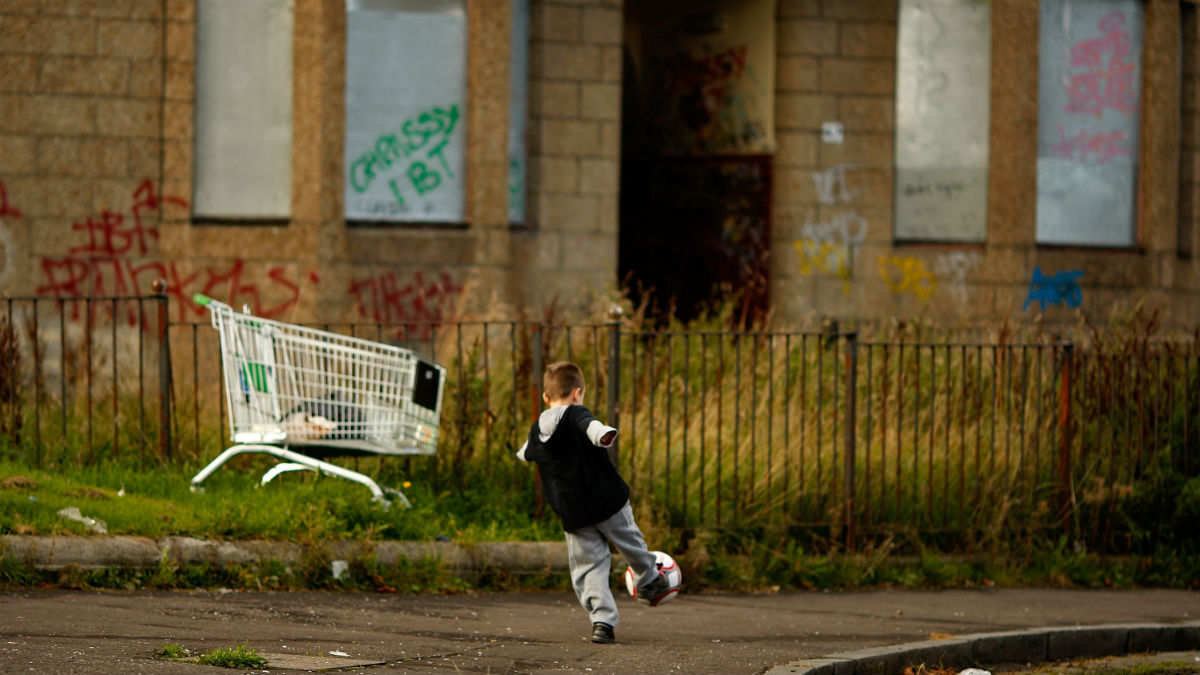Counting the cost of poverty: £78bn spent annually in the UK
Government urged to take tougher stance on tackling high levels of inequality across the country

A free daily email with the biggest news stories of the day – and the best features from TheWeek.com
You are now subscribed
Your newsletter sign-up was successful
Poverty costs the government £78 billion per year, according to the Joseph Rowntree foundation.
The organisation, which funds research into social policy, says it is the first time researchers have calculated the total cost of poverty across all age groups and government departments.
"It is hard even to estimate the full cost of poverty, not least its full scarring effect on those who experience it," said Professor Donald Hirsch from the Centre for Research in Social Policy at Loughborough University, who carried out the study alongside researchers from Heriot-Watt University.
The Week
Escape your echo chamber. Get the facts behind the news, plus analysis from multiple perspectives.

Sign up for The Week's Free Newsletters
From our morning news briefing to a weekly Good News Newsletter, get the best of The Week delivered directly to your inbox.
From our morning news briefing to a weekly Good News Newsletter, get the best of The Week delivered directly to your inbox.
"What our figures show is that there are very large, tangible effects on the public purse," he added.
What does the report reveal?
The research into poverty – defined as living on an income below 60 per cent of the average – shows that the NHS bears the brunt, spending £29bn on treating health conditions associated with poverty.
"The experience of poverty makes it more likely that you'll suffer ill health or that you'll grow up with poor employment prospects and rely more on the state for your income," says Hirsch.
A free daily email with the biggest news stories of the day – and the best features from TheWeek.com
A further £10bn is spent on schools providing free school meals and other initiatives, while the police and criminal justice system pay £9m dealing with higher crime rates in deprived areas.
The rest of the budget is spent on children's services, adult social care and housing.
It is not only a moral question about whether it is right to have high levels of poverty in one of the world's richest countries, says Katie Schmuecker, head of policy at the foundation.
"It is also an economic one," she writes in the Times. "£78bn is a cost we can ill afford."
What has the reaction been?
Theresa May, who made tackling inequality a key pledge when she became Prime Minister, insists her party has made "good progress" and remains committed to addressing the root causes of poverty.
"But there's more to do and we're taking action across other areas like education and family breakdown so we can help more people to succeed in life," a spokesperson said.
The chancellor's Autumn Statement will be the moment to watch in order to see "how bold this government is willing to be," says Schmuecker.
"Otherwise, we risk returning to business as usual – and the enormous cost that has for us all."